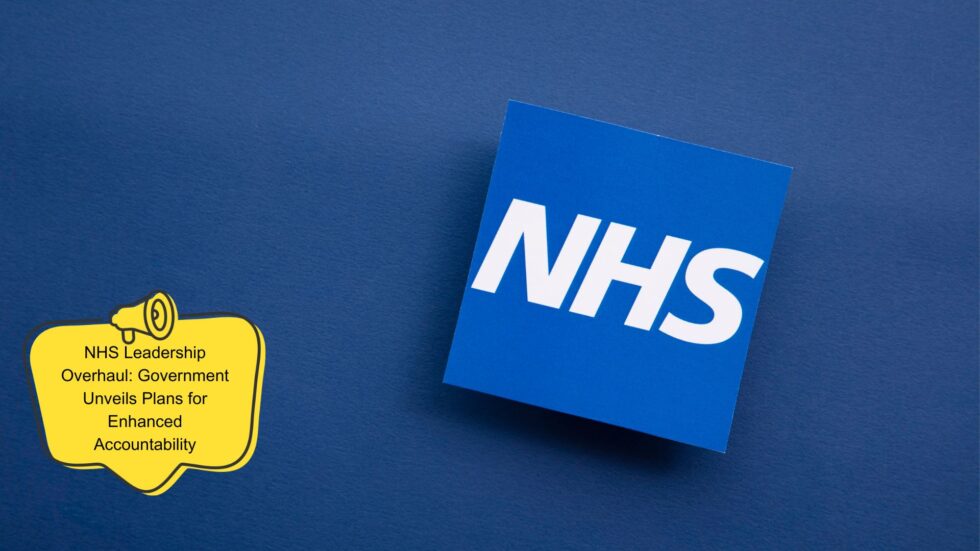The UK government is embarking on a transformative journey to reshape leadership and accountability within the National Health Service (NHS) as part of its ambitious 10 Year Health Plan. This initiative aims not only to address long-standing systemic issues but also to restore public confidence in the NHS, ensuring it meets the high expectations of patients and the wider community.
A Vision for Leadership
At the heart of these reforms is a commitment to nurturing the best leadership talent within the NHS. The government acknowledges that effective leadership is crucial for driving improvements in patient care and organisational culture. As highlighted in the forthcoming Lord Darzi review, investing in NHS managers and leaders is essential for fostering a healthcare system that is both responsive and resilient. To this end, NHS England is developing a comprehensive leadership and management framework. This framework will introduce:
- A code of practice that sets clear expectations for conduct.
- Core standards to guide performance.
- A development curriculum designed to enhance skills and competencies throughout a manager’s career.
These initiatives aim to cultivate a culture of openness and accountability, encouraging NHS staff to voice concerns without fear of repercussions.
Learning from the Past
The need for reform has been underscored by numerous high-profile public inquiries over the past two decades, which have revealed serious failures in NHS leadership. Tragic cases have often highlighted a lack of accountability among those in senior positions, leading to devastating consequences for patient care. In response, the government has already taken steps such as implementing the fit and proper person test (FPPT) for directors, ensuring that only suitable individuals are appointed to leadership roles.However, ongoing inquiries, such as the Thirlwall Inquiry into events at Countess of Chester Hospital, continue to expose gaps in accountability. The Infected Blood Inquiry further emphasised the critical need for transparency and candour across all levels of NHS leadership. As such, the government is committed to strengthening accountability mechanisms to ensure that NHS managers are held responsible for their actions.
Proposed Regulatory Models
To enhance oversight of NHS managers, several regulatory models are under consideration:
- Statutory Barring System: This would create a list of individuals barred from managerial roles due to serious misconduct, ensuring that those who fail in their duties cannot simply move between positions without scrutiny.
- Professional Register: Similar to existing healthcare regulators, this would require managers to demonstrate their qualifications and competencies through a mandatory or voluntary registration process.
- Full Statutory Regulation: This model would place NHS managers on par with doctors and nurses, requiring them to register with a regulatory body and undergo periodic revalidation.
- Accredited Voluntary Register: An independent register that assures public protection by listing individuals who have demonstrated their skills and competencies.
The consultation process will gather input from stakeholders—including health organisations, regulators, and patients—on which regulatory model would be most effective in enhancing accountability while ensuring that NHS managers can continue to lead effectively.
Weighing the Pros and Cons
Advantages
- Enhanced Accountability: A robust regulatory framework would ensure that NHS managers are held accountable for their actions, potentially leading to improved patient safety.
- Professional Standards: Clear standards could foster more consistent management practices across the NHS.
- Public Confidence: Strengthening oversight may bolster public trust in NHS leadership.
- Career Development: The framework could provide clearer pathways for professional growth among NHS managers.
Challenges
- Implementation Complexity: Establishing a new regulatory system may be intricate and time-consuming due to the diverse roles within NHS management.
- Cost Implications: There could be significant costs associated with setting up and maintaining a regulatory body.
- Potential Deterrent: Strict regulations might discourage talented individuals from pursuing careers in NHS management.
- Bureaucratic Burden: Additional requirements could create administrative challenges that detract from patient care.
- Flexibility Concerns: A rigid regulatory framework might limit managers’ ability to respond swiftly to changing healthcare needs.
Conclusion
As the UK government moves forward with these reforms, it aims to create a more accountable and effective leadership structure within the NHS. By fostering a culture of professionalism and transparency, these changes have the potential to significantly improve patient care while restoring public confidence in one of the nation’s most vital institutions. The upcoming consultation will play a pivotal role in shaping a regulatory system that balances accountability with the flexibility needed for effective management in an ever-evolving healthcare landscape.

